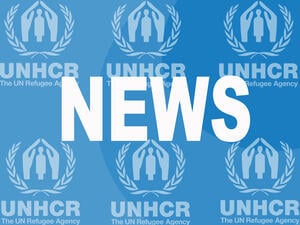World Refugee Day 2016
World Refugee Day 2016
20 June is World Refugee Day. It is a time for us all to join in solidarity with the millions of refugees around the world who have been forced from the security of their homes by war and persecution. It is also a time to acknowledge their courage and resilience in the face of appalling challenges and insecurity.
As of end 2015, an unprecedented number of over 65 million people worldwide have been forced to flee their homes – the highest number since the end of the Second World War. A record high of one in every 113 humans – or more than twice the population of Malaysia – is affected by conflict or serious human insecurity.
WORLD REFUGEE DAY 2016 IN MALAYSIA
To commemorate World Refugee Day 2016, UNHCR, the UN Refugee Agency brought together over 130 key stakeholders from the Government, private sector, trade associations, civil society, multilateral organisations, and academia, to discuss perspectives on issues related to lawful labour schemes for refugees in Malaysia.
Malaysia hosts over 158,000 refugees and asylum-seekers, mainly from Myanmar and other countries such as Sri Lanka, Pakistan, Somalia, and Syria. These are persons who have been forced to flee their countries due to war and human rights abuses.
Malaysia is not a State Party to the 1951 Refugee Convention and its Protocol and does not have an asylum system in place to regulate the status and rights of refugees. As a result, refugees have no legal status in Malaysia and are considered as illegal migrants. As such, they have no lawful means to earn a livelihood or to support themselves and their families. This deepens the profound sense of insecurity and trauma that accompanies their forced displacement. It also prevents them from making a meaningful contribution to Malaysia during their stay in exile.
The Expert Roundtable aimed to generate ideas and explore policy and operational implications to the country of legal access to work for refugees.
In discussions, the participants looked at three interrelated issues surrounding access to legal work for refugees, namely the economic benefits to Malaysia, the security benefits to the Government in dealing with law and order and criminality, and the human security and humanitarian benefits to refugees.
Tan Sri Dato Seri Syed Hamid Albar, former Malaysian Minister of Home Affairs and the Organisation of Islamic Cooperation (OIC) Special Envoy for Myanmar on the Rohingya Issue, presented the Keynote Address during the Roundtable.
The Roundtable was moderated by Mr Wan Saiful Wan Jan, CEO of the Institute of Democracy and Economic Affairs (IDEAS).
The panelists and discussion topics were:
National Security and Refugees: Exploring the Issues
Dato’ Steven Wong, Deputy Chief Executive, Institute of Strategic & International Studies
Refugees and the Right to Work
Dato’ M. Ramachelvam, Chairperson, Migrants, Refugees and Immigration Affairs Committee, Bar Council Malaysia
Socio-economic Perspectives on Employing Refugees in Malaysia: Multiple Benefits, Minimal Costs
Professor Dr. Lee Hwok Aun, Senior Lecturer, Department of Development Studies, Faculty of Economics and Administration, University of Malaya
Promoting the Self-reliance of Refugees in Malaysia: A Win-Win Situation for All
Dr. Sharuna Verghis, Director, Health Equity Initiatives
The evolving geopolitical landscape in the region now presents unique opportunities to reconceptualise the way refugees are looked after in host states such as Malaysia and to explore innovative approaches that address both the legitimate interests of hosting states and the protection needs of refugees, in ways that are mutually reinforcing.
A transitional work rights scheme for refugees presents a potentially ‘win-win’ scenario for Malaysian society, for employers and industries, and for refugees who reside here temporarily. A better regulated scheme for refugees, that includes the opportunity to work lawfully, would address the legitimate concerns of the Government concerning security, law and order, and criminality that currently pervades parts of the unregulated labour market economy.
It would also provide a ready source of willing and reliable labour to support the Malaysian economy. For refugees, a transitional work scheme would be transformational in improving their protection and dignity, particularly for dependent women and children. Greater resilience among refugee communities would be less of a burden on the host state and build a stronger platform for longer term solutions.
WORLD REFUGEE DAY MALAYSIA: https://www.facebook.com/WorldRefugeeDayMalaysia



